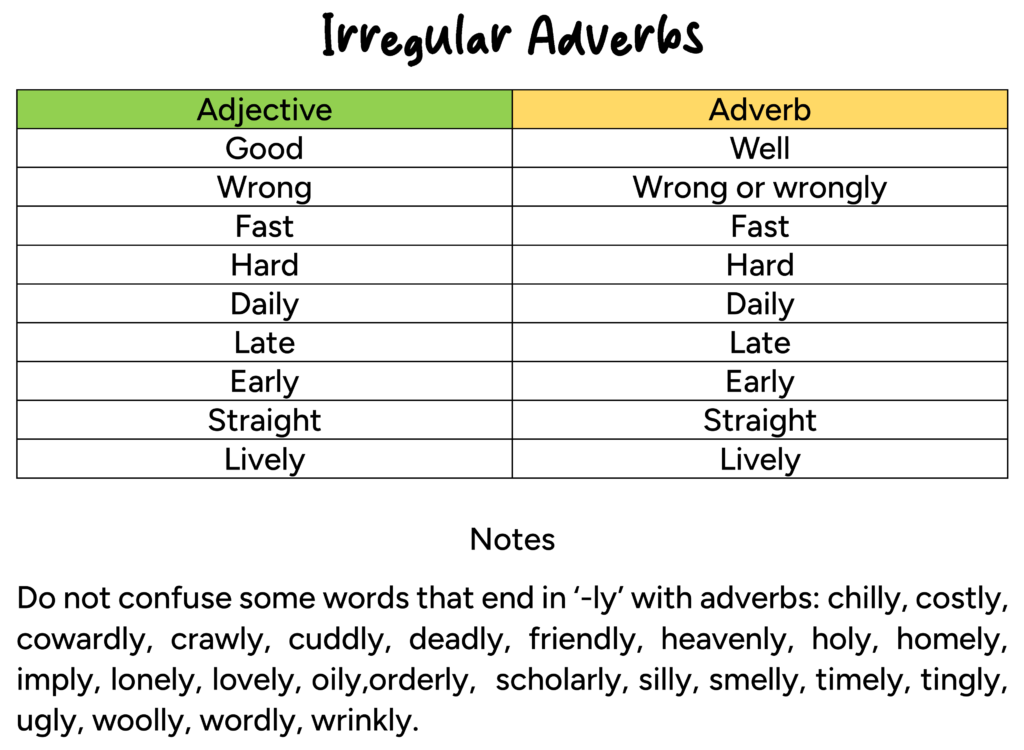Adverbs describe verbs, adjectives and other adverbs. Look at the following examples:
I carefully planned the wedding (adverb modifying a verb).
She seems surprisingly calm (adverb modifying an adjective).
He wrote five verbs incredibly fast (adverb modifying an adverb).
Other uses of adverbs
1-They can modify a whole sentence (also known as sentence adverbs) and they appear at the beginning.
Certainly, there will be negative consequences.
More sentence adverbs: actually, certainly, clearly, curiously, evidently, fortunately, fortunately, frankly, generally, honestly, ideally, indeed, interestingly, ironically, logically, luckily, naturally, obviously, sadly, technically, thankfully, undoubtedly, unfortunately.
2-Adverbs can modify prepositional phrases.
She waited patiently at the bus station.
How to form the adverbs?
1-The most common way to create an adverb is to add ‘-ly’ to an adjective.
Slow = Slowly
Strong = Strongly
Careful = Carefully
2-There are adjectives that end in ‘-y’; you have to remove ‘-y’ and add ‘-ily’ to form the adverb.
Easy = Easily
Lucky = Luckily
Crazy = Crazily
3-There are adjectives that end in ‘-ic’; you have to add ‘-ally’ to form the adverb.
Economic = Economically
Heroic = Heroically
Realistic = Realistically
Exception: public = publicly
4- There are adjectives that end in ‘-e’; you have to add ‘-ly’ to form the adverb.
Secure = Securely
Large = Largely
Pure = purely
Exceptions: whole = wholly, due = duly
5- There are adjectives that end in ‘-l’; you have to add ‘-ly’ to form the adverb.
Actual = Actually
Casual = Casually
Total = Totally
6- There are adjectives that end in ‘-able’, ‘-ible’, ‘-le’; you have to remove the ‘-e’ and add ‘-y’ to form the adverb.
Notable = Notably
Visible = Visibly
Subtle = Subtly
7- There are adjectives that end in ‘-ll’; you have to add ‘-y’ to form the adverb.
Full = Fully
Dull = Dully

To read more types of adverbs click here.
Read more about comparative and superlative adverbs here.
Read more about other parts of speech: